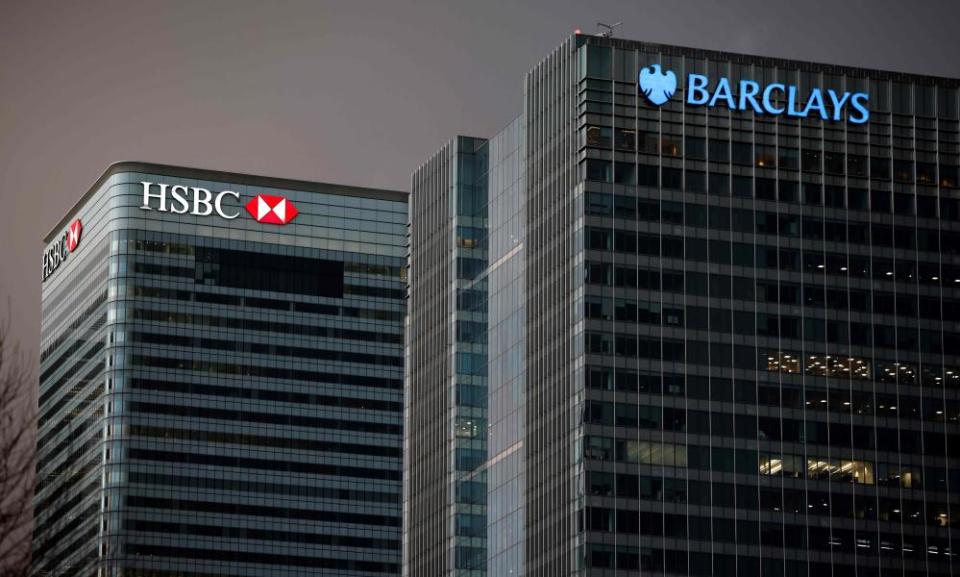Leading finance firms sign up to Mark Carney forum on low-carbon investment

Banks and financial institutions with more than $70tn assets have pledged to cut their greenhouse gas emissions and ensure their investment portfolios align with the science on the climate.
In the initiative, chaired by Mark Carney, the former governor of the Bank of England, 160 companies, including 43 banks from 23 countries, will set targets to cut the carbon content of their assets by 2030, in line with an overall goal of net zero emissions by 2050.
The forum, the Glasgow Financial Alliance for Net Zero, aims to encourage the financial sector to divert investment towards low-carbon infrastructure and technologies, and to discourage high-carbon investments, ahead of Cop26, the vital UN climate talks to be hosted by the UK in Glasgow this November.
Janet Yellen, the US Treasury secretary, and John Kerry, the US special presidential envoy for climate, are backing the alliance. The White House is holding a virtual summit on the climate on Thursday, with 40 world leaders invited to discuss fresh commitments on cutting emissions in the next 10 years.
Kerry said: “The largest financial players in the world recognise that energy transition represents a vast commercial opportunity as well as a planetary imperative. As countries around the world move to decarbonise the large sums these institutions are dedicating to climate finance also reflect a growing understanding of how critical a low-carbon global economy is to their business models.”
HSBC, Lloyds, Barclays, Citi, Morgan Stanley and Bank of America are among the banks signed up, along with insurers including Axa, Munich Re, and Swiss Re.
Carney, who is advising Boris Johnson on climate finance as well as acting as UN special envoy for climate action and finance at Cop26, said: “This is the breakthrough in mainstreaming climate finance the world needs. GFANZ [will be] the gold standard for net zero commitments in the financial sector.”
He and other officials said the alliance would not allow banks to “greenwash” their commitments. Many banks have claimed to be “Paris compliant” or to follow the principles and aims of the 2015 Paris climate agreement, which binds countries to hold global temperature rises to below 2C pre-industrial levels, and preferably no more than 1.5C above.
However, since the signing of the Paris agreement in 2015 banks have poured at least $3.8tn into fossil fuel financing, a recent report stated.
Simon Youel, of the campaign group Positive Money, said: “It’s positive that policy makers are recognising the role finance plays in making or breaking the green transition, but what appears to be another voluntary alliance for banks to sign up to is just not good enough.
“The financial system is fuelling environmental breakdown on a catastrophic scale, and what we really need is for central banks to play their roles as regulators and take concrete action to prevent all of the firms they oversee from making investments that are incompatible with governments’ climate targets.”
Banks signing up to GFANZ would be required to show “credible plans” for reducing their investment in high-carbon assets, but would not face a deadline for exiting fossil fuel investment.
Officials said there would be no blanket requirements for companies to stop financing coal, for instance, and banks would be allowed to make their own judgments on the carbon content of their portfolios, on a case by case basis.
Related: Green groups raise concerns over Carney carbon credits plan
Companies in the GFANZ alliance would also be allowed to buy carbon offsets to serve their carbon-cutting goals, but within restrictions – offsets should only be used where sectors find it hard to decarbonise, such as steel manufacture, should only be used when no other decarbonishing options are available, and should only be certified carbon credits.
Carney came under fire recently for his claims that Brookfield Asset Management, of which he is vice-chair, was “net zero across its $575bn asset portfolio”. An investigation by Greenpeace and Bloomberg found that the company had stakes in coal, oil sands infrastructure, and gas.
The company justified its net zero claim on the basis that it had other investments in low-carbon infrastructure, such as renewable energy. But campaigners pointed out that this could not be considered carbon neutral. Carney issued a statement promising Brookfield would be “going further to support the transition to net zero” in future.

 Yahoo Finance
Yahoo Finance 